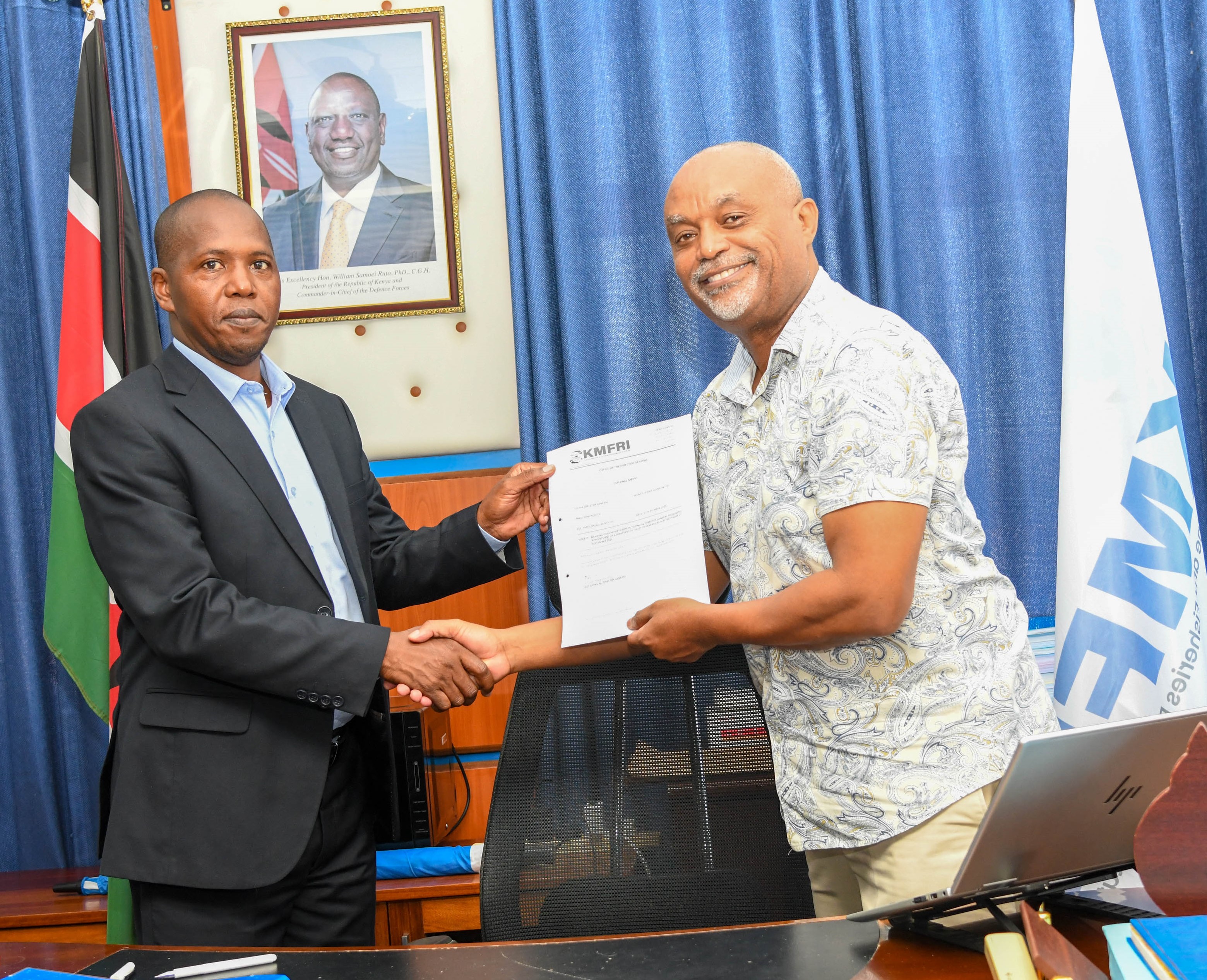 Dr. James M. Mwaluma (Right) handing over to Dr. Paul S. Orina(left)./COURTERSY
Dr. James M. Mwaluma (Right) handing over to Dr. Paul S. Orina(left)./COURTERSY
The Kenya Marine and Fisheries Research Institute (KMFRI) has a new boss following the appointment of Dr Paul Sagwe Orina as Director General.
Dr. Orina assumed office last Friday following a formal handover meeting led by the outgoing acting DG, Dr James Mwaluma.
Before his appointment, he was the Freshwater Aquaculture Assistant Director and the Centre Director based in Kegati, Kisii County. He was appointed following a competitive recruitment by the board chaired by Dr. Wenwa Akinyi Odinga.
“We are pleased to announce the appointment of Dr. Paul S. Orina as the new KMFRI Director-General. Dr. Orina, who has been serving as an assistant director of aquaculture, brings extensive experience and a proven track record of excellence in various capacities he has held before,” KMFRI said in a statement.
The agency added, “His leadership in driving transformative and impactful projects, commitment to development research, and dedication will be essential in advancing science, fostering innovation, and promoting the sustainable use of Kenya’s aquatic resources.”
KMFRI is headquartered in Mombasa with centres in Kisumu, Shimoni in Kwale, Kegati, Naivasha, Turkana, Gazi, Mutonga, Baringo and Sangoro.
KMFRI says Dr Orina has mentored many MSc and PhD students since 2012 and is also a facilitator in the Fisheries and Aquaculture MSc. Module for the International MSc. Program in Limnology & Wetland Ecosystems offered by Egerton University (Kenya) and University of Natural Resources and Applied Life Sciences (Austria) under the support of UNESCO-IHE DELFT.
Dr Orina has 13 years’ experience in freshwater fisheries while working for KMFRI in Lakes Turkana and Naivasha, and also has served for 12 years in freshwater aquaculture.
He has vast knowledge on fish breeding and culture systems with a major focus on indigenous commercially important fish species domestication and conservation of genetic material.
He headed the inception of private investment of Nile tilapia and African catfish hatcheries in Kenya (2010-2016), resulting in the rise from less than 30 to over 100.
Local and regional projects include the Kenya Agricultural Productivity and Agribusiness Program (KAPAP), Association for Strengthening Agricultural Research in Eastern and Central Africa (ASARECA), Strengthening Institutional Capacity for Participatory Action Research in Aquaculture (USAID-PEER), National Research Fund (NRF), National Council of Science and Technology (NACOST) and Kenya Climate Smart Agriculture Project.
International projects include the recently concluded BBSRC fund in collaboration with India and the UK, Technologies for African Agriculture Transformation (TAAT), a WorldFish (Malaysia) funded project in partnership with the African Development Bank (AfDB) and St John York University Seed Fund for Climate Smart Aquaculture Technologies in Africa.












